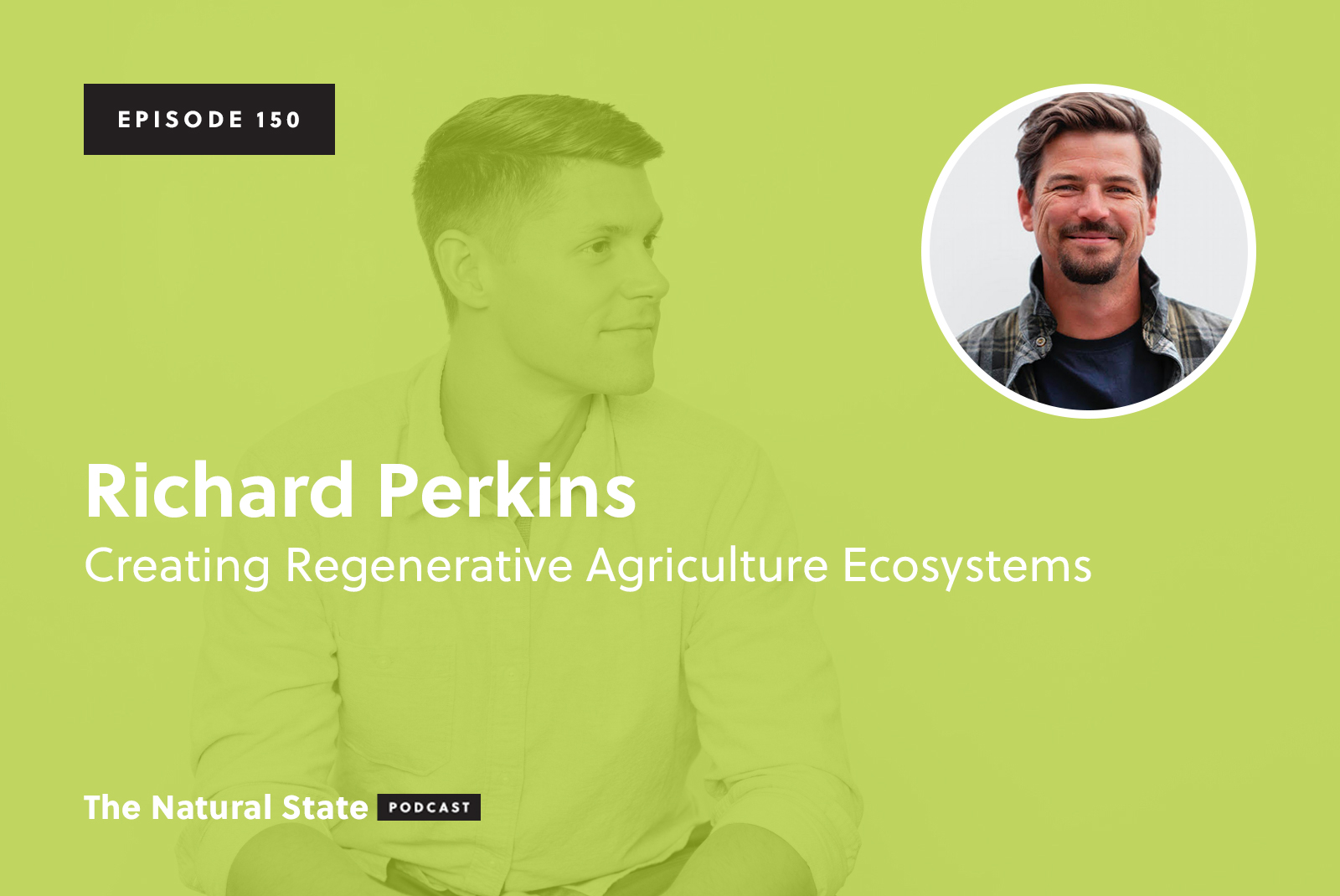I talk a ton about regenerative agriculture on this podcast and this episode’s guest is easily one of my favorites in the space.
Richard Perkins is the leading expert on regenerative agriculture. He even wrote a textbook on it.
He’s also an incredible educational leader and a massive wealth of knowledge.
In this episode, Richard shares his background, how he learned to fend for himself living in a gypsy community, how animals are irreplaceable, and more.
He also answers questions like: is regenerative agriculture available to small farms? Can it be scaled? What does it take to start a regenerative agriculture farm?
Richard also chats about why he switched from growing vegetables to animal husbandry, the negative consequences of our current farming practices, mineral depletion in our soil, how to create a profitable farm that can provide for a family, and what to grow based on your farm size.
Most row cropping is empty calorie production. Click To TweetWith over 10+ years of running his own regenerative agriculture farm and teaching others how to do so, Richard is an incredible wealth of knowledge on the subject. He’s so well-versed on biodiversity and understanding what species grow best where that it was a huge honor to have him on the show. Richard shares as much of these details as he can in this episode — it’s so jam-packed that you don’t want to miss it.
Whether you’re dreaming of owning a farm one day or you’d like to turn yours into a regenerative agriculture farm, or you’re just interested to learn more, this episode is for you.
Here’s a breakdown of what’s in store:
- How Dr. Gustin found Richard and his work
- How Richard found himself in this space and his journey throughout the years
- What it was like to live in a gypsy community
- The problem with modern farming and how it got to this point
- Why Richard chose to leave vegetable farming for animal husbandry
- How the health of our soil is affected by our current farming practices and what can be done about it
- The downsides of row crops
- Mineral depletion in soil and how to restore it
- How fertilizers, pesticides, rodenticides, and fungicides are killing the health of our soil and planet
- How to improve the health of our top soil
- What are the most profitable farm activities to help people make a living?
- Richard’s number one advice for starting your own farm
- What you can grow or raise based on your land size
- How to deal with the downsides of running your own farm and what those really look like
- Why we have an urge to fix the world, why this rarely works, and what to do instead
Mentioned in This Episode
- Richard Perkins’ website and blog
- Richard Perkins’ YouTube channel
- Richard’s farm Ridgedale
- Richard’s book, Regenerative Agriculture: A Practical Whole Systems Guide to Making Small Farms Work
More Resources
- The Natural State Podcast Episode 143: James Connolly – The Real Issues That Need to Be Addressed With Our Food System
- The Natural State Podcast Episode 139: Eric Perner – Optimizing Regenerative Agriculture for a Better Future for Our Planet
- The Natural State Podcast Episode 141: Justin Mares – Changing the Food System With Regenerative Agriculture
- The Natural State Podcast Episode 134: Dr. Paul Saladino – What We Learned from One of the Last Hunter-Gatherer Tribes
- The Natural State Podcast Episode 122: Ed Byrne – Making Regenerative Agriculture Mainstream
